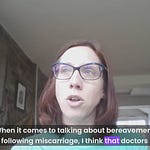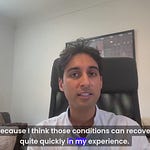Adéla Odrihocká is an award-winning advocate for rare diseases. Her commitment has led her to co-chair a patient organisation for Ehlers-Danlos syndromes and collaborate closely with Rare Diseases Czech Republic and EURORDIS - Rare Diseases Europe.
"It makes much more sense to be advocating on a much bigger level that has a much more impact on everyone than only to fight for my rights and to fight for my needs."
Adéla shares her extensive experience and the profound challenges faced by those with rare diseases, from prolonged diagnosis journeys to combating gender bias and medical gaslighting in healthcare. She underscores the importance of holistic care and the critical role of patient involvement in decision-making processes, advocacy, and policy changes. This episode also delves into how technology and digital tools are revolutionising advocacy and improving access and care for patients with rare diseases.
I thoroughly enjoyed this conversation with Adéla. It was reassuring to hear how she balances paid work, voluntary advocacy, and rest, emphasising that she is not a superwoman. We all strive to find balance, and while it's a journey with its bumps, each challenge offers a lesson that helps us improve. Additionally, the concept of a national coordinator in the Czech Republic is fascinating. This role acts as a crucial link between healthcare and social services, guiding individuals on accessing benefits and seeking support from employers. I hope you enjoy it!
Chapters
02:10 Understanding Rare Diseases and the Importance of Advocacy
08:12 Navigating Gender Bias and Diagnostic Odyssey
15:09 Manifestation of Ableism and Combating It
25:08 Involving Patients in Designing Digital Tools
29:14 Policy Changes for Patient Rights and Access to Care
31:32 The Importance of Patient Advocacy
33:48 The Role of Self-Advocacy and Community Support
46:01 Creating Awareness and Support for Rare Disease Patients
Links to stuff we discussed:
MAYA DUSENBERY - DOING HARM - The Truth About How Bad Medicine and Lazy Science Leave Women Dismissed, Misdiagnosed, and Sick
RARE CONNECT - a global online platform that connects patients, caregivers and healthcare professionals with those who are living with rare diseases
ORPHANET - Knowledge on rare diseases and orphan drugs
EURORDIS - A non-governmental patient-driven alliance of patient organisations and individuals active in the field of rare diseases that promotes research on rare diseases and commercial development of orphan drugs
Takeaways
Ableism manifests in various ways, including inaccessibility and discrimination in social and employment settings.
Technology and digital tools have had a significant impact on rare disease advocacy, providing access to information, online communities, and remote healthcare services.
Rare disease patients face numerous challenges, including medical gaslighting, lack of disability recognition, and limited access to social support.
There is a need for a more integrated and holistic approach to healthcare and social support for rare disease patients.
Self-advocacy and community support are essential for navigating the challenges of living with a rare disease.












